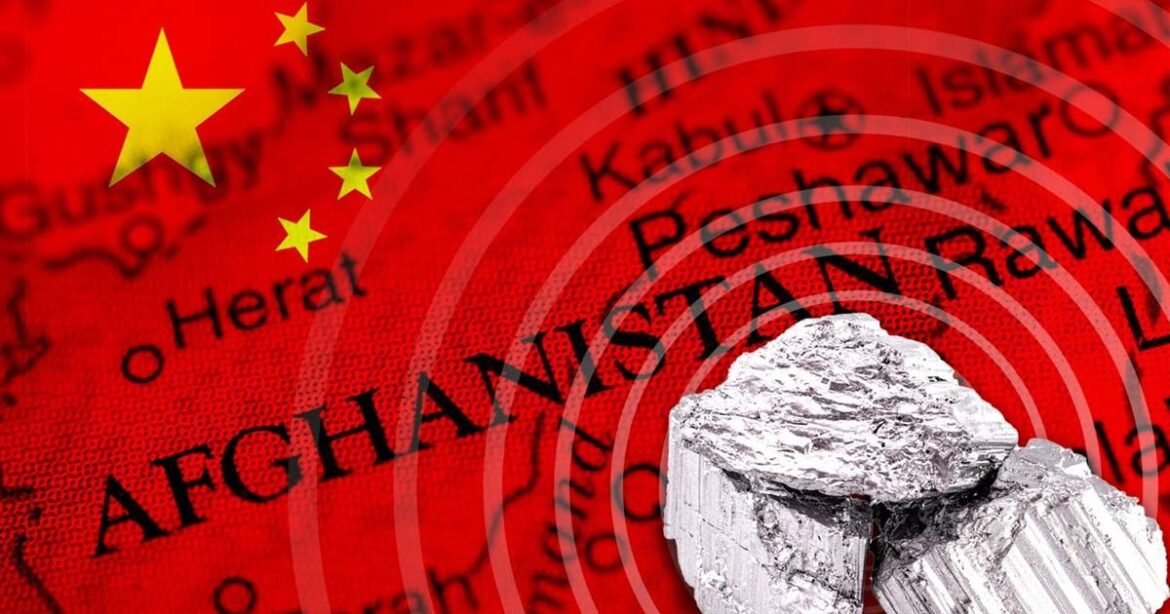Since the Taliban’s resurgence to power, China’s economic ties with them have grown, and Chinese corporations are now offering investments in Afghanistan. Furthermore, the Taliban may view Beijing as a possible source of economic investment following the United States’ withdrawal.
According to a number of media reports, Chinese companies have long desired access to Afghanistan’s vast and valuable lithium deposits, which are estimated to be worth over USD 1 trillion.
You can also read: Why UK is joining trans-pacific trade pact?
Shahabuddin Delawar, the acting minister for Mines and Petroleum, met with representatives of the Chinese corporation in Kabul and welcomed Gochin’s interest in investing in Afghanistan’s lithium mines. According to Delawar, lithium mines are uncommon, and the Ministry of Mines and Petroleum has decided to contract all mines in accordance with the Mining Law.
Expanding economic ties
Gochin, a Chinese corporation, has reportedly expressed interest in investing $10 billion in lithium deposits in Afghanistan.
A representative of the Chinese corporation Gochin has shown interest in investing $10 billion in Afghanistan’s lithium mines. The proposed investment is expected to create over 120,000 direct jobs and over 1,000,000 indirect jobs. According to a statement from the Ministry of Mines and Petroleum, the Chinese company also offered to restore the Salang Pass within seven months and to carve a new tunnel.
In January 2023, a Chinese firm signed a 25-year, multimillion-dollar contract to extract oil in Taliban-controlled Afghanistan, marking the country’s first significant foreign investment. In January, the Ministry of Mines and Petroleum inked an extraction contract with China Petroleum Economics and Information Research Center (CPEIC) for the Amu oil field.
According to the contract, Afghanistan’s share is 20% and will increase to 75% in the future.
Gochin emphasized that the lithium deposits will be processed within the country, for which a hydroelectric facility will be constructed and the road between Kumar and Laghman will be paved.
In addition to Afghanistan, China has benefited from the growth of Afghanistan’s hydrocarbon and mineral industries. By investing in Afghanistan’s natural resources, China can guarantee a steady supply of energy and minerals for its own use, thereby contributing to the country’s long-term economic development. Moreover, China’s investments in Afghanistan’s infrastructure and natural resources have enhanced trade and transit connections between the two countries, thereby strengthening their economic ties.
China’s play
China’s energy security is a major strategic concern, and dealing with the Taliban is just one element of the problem. China has the largest population and is a global industrial leader. It also consumes the most energy worldwide. The nation lacks sufficient resources to satisfy the demands of its rapidly expanding domestic market. As a consequence, China is now a significant net importer of oil and gas, which has been the the push for a number of its recent alliances, including those with Russia, Ecuador, and the Gulf States of the Middle East.
With the exception of Russia, all of China’s energy imports must be shipped by sea, which means they must pass through politically sensitive areas that the United States is militarizing, such as the South China Sea. Despite China’s good relations with these countries, this is a strategic weakness.
China is working on its own sphere of influence through initiatives like the Belt and Road Initiative (BRI). Yet, no Chinese geopolitical vision, including the BRI, would be complete without the inclusion of Afghanistan. As part of this strategy, China is involved in Afghanistan’s energy and mineral industries. A little piece of the Central Asian country’s border with China connects the Middle East, Central Asia, and Southern Asia.
This demonstrates why China’s security, strategy, and economic growth all depend on maintaining a presence in Kabul.
Islamic State against Taliban and China
Although China and Taliban led Afghanistan seem to be enjoying huge economic benefits; however, the hazards are greater, particularly in the context of attacks against Chinese nationals.
Islamic State Khorasan Province (ISKP) has effectively established itself as the Taliban’s “primary rival,” according to a report on the group’s threat published by the United Nations in early February. The group continues to launch monthly attacks in Afghanistan and is now conducting explosives with a greater impact than in the past.
Over the past few months, it has carried out dozens of attacks that hurt dozens of people. For example, in January, a suicide bomber attacked the Ministry of Foreign Affairs in Kabul, killing more than 50 people.
In cities such as Kabul, the Taliban are incapable of ensuring security. In December 2022, the fact that ISKP has been increasingly able to launch significant attacks against high-profile targets such as the Foreign Ministry and the Kabul Longan Hotel indicates that the Taliban’s security provisions are severely deficient.
ISKP is actively targeting China, which has developed a close relationship with the Taliban regime. On occasion, China has strengthened Taliban aspirations by indicating that Beijing intends to increase its engagement in both the economic and security realms.
In recent months, ISKP’s online propaganda has become increasingly China-centric. Recently, the group cited liberating Uyghurs as one of its top priorities while threatening attacks against the Chinese.
In December 2022, the group attacked a hotel popular with Chinese citizens in downtown Kabul, injuring at least five of them. Following the suicide bombing of a hotel in Kabul in December 2022, China urged its citizens to leave Afghanistan as quickly as feasible.
The ISKP’s campaign against China could result in a number of undesirable outcomes for Afghanistan. Beijing will likely maintain a cautious approach to its commitment to the country and will not risk a significant security incident.


